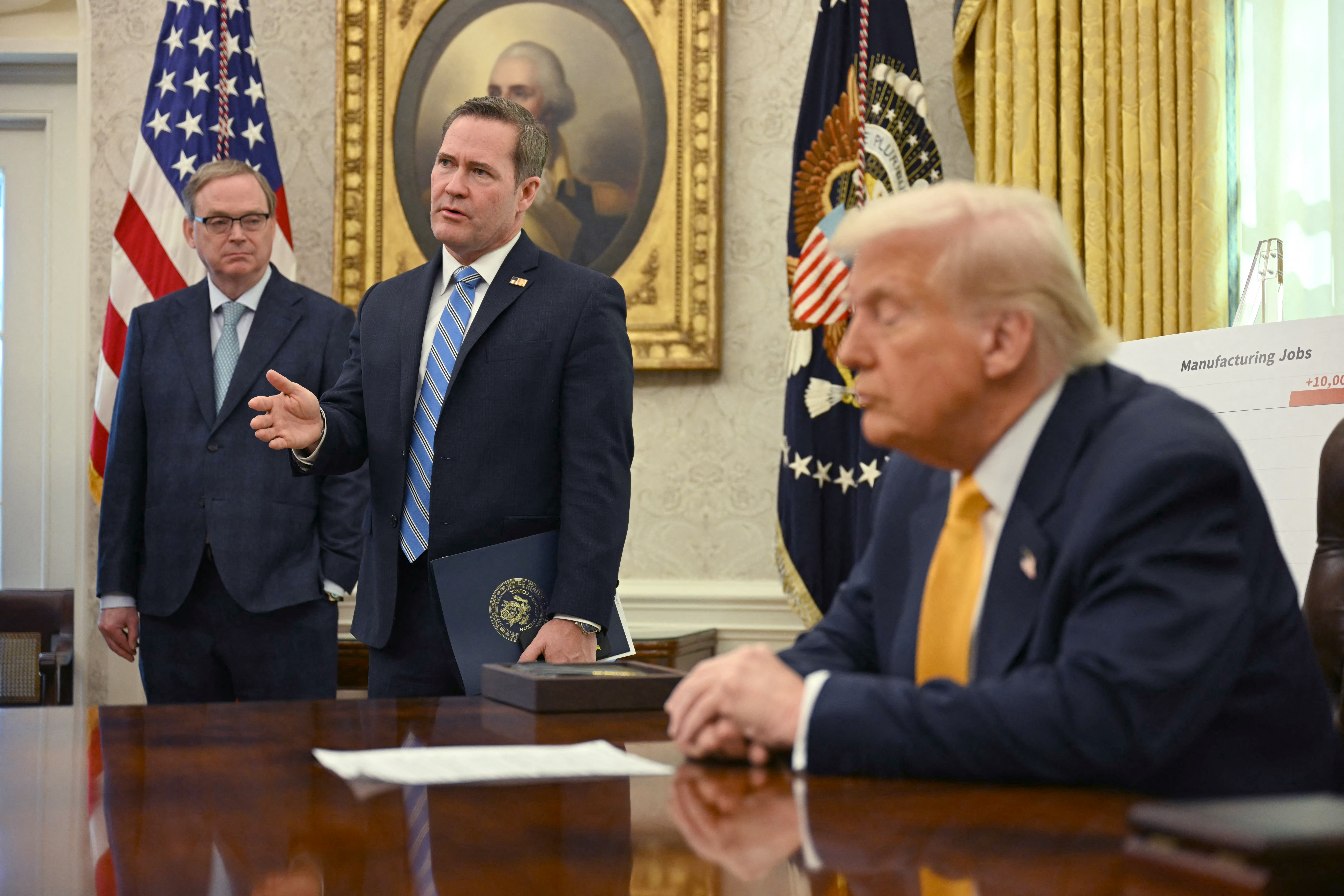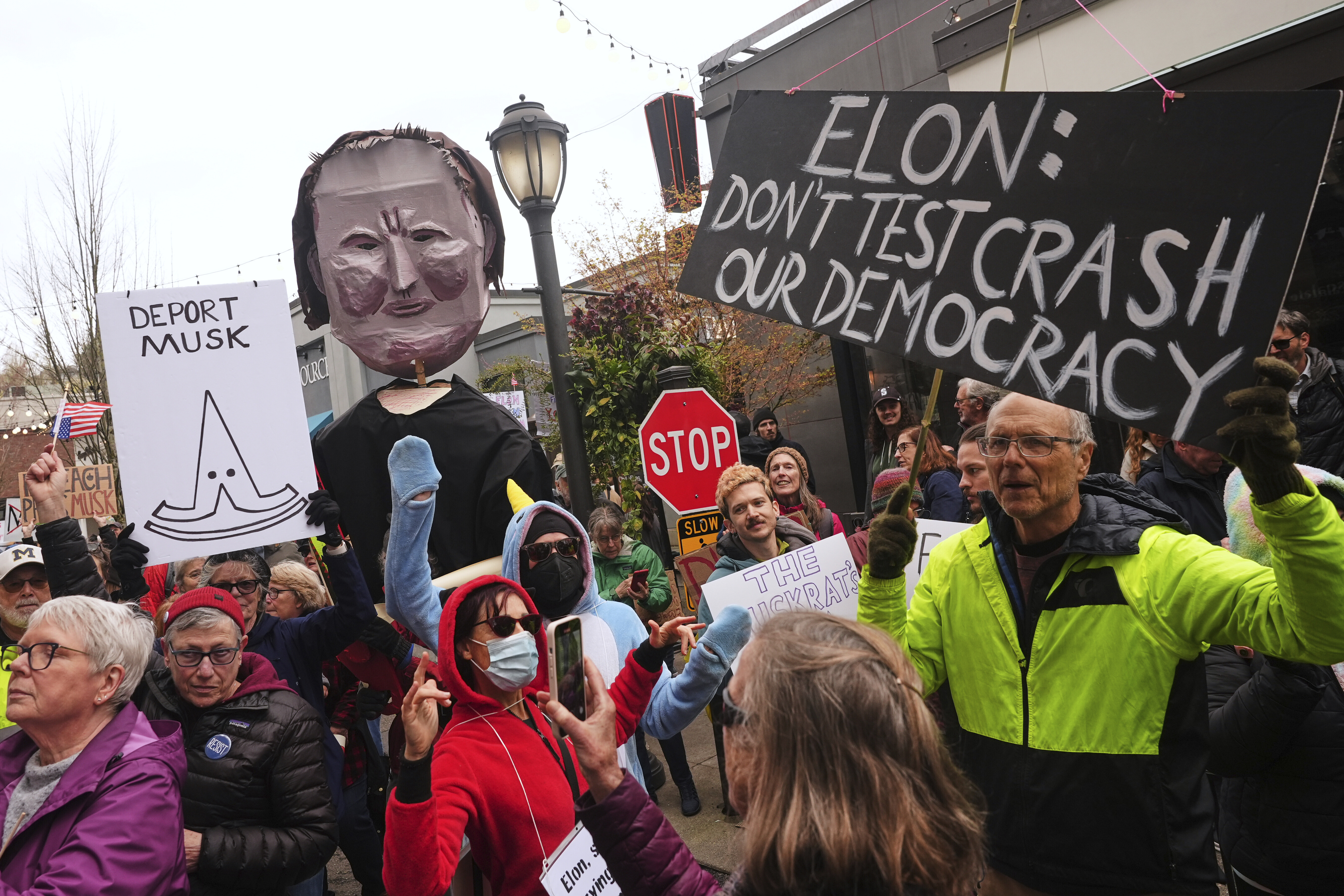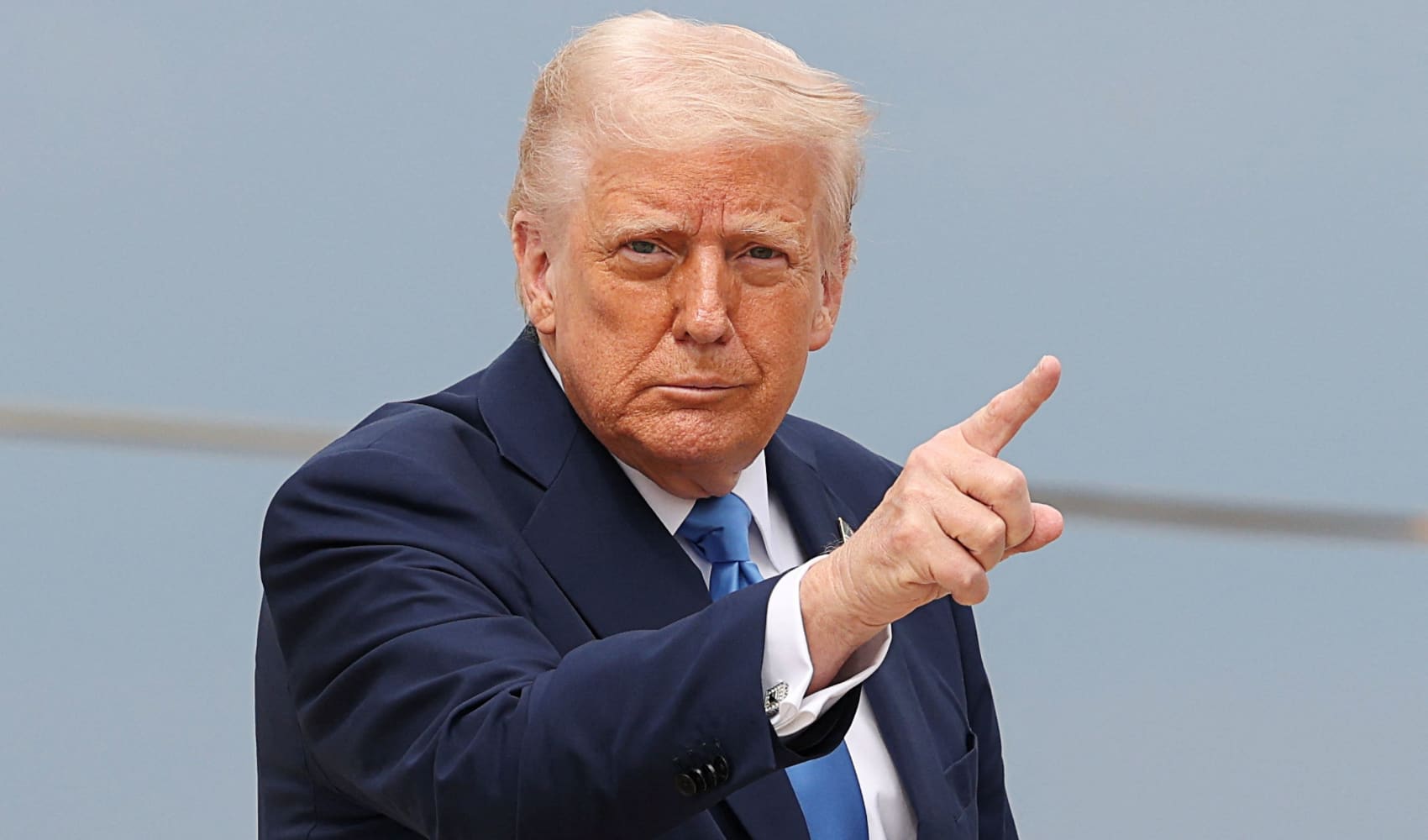President Donald Trump said he was “very angry” and “pissed off” when Russian President Vladimir Putin criticized the credibility of Ukrainian President Volodymyr Zelenskyy’s leadership, adding that the comments were “not going in the right location.”
Agence France-Presse reported that Putin on Friday called for a transitional government to be put in place in Ukraine, which could effectively push out Zelenskyy.
“If Russia and I are unable to make a deal on stopping the bloodshed in Ukraine, and if I think it was Russia’s fault — which it might not be — but if I think it was Russia’s fault, I am going to put secondary tariffs on oil, on all oil coming out of Russia,” Trump said in an early-morning phone call with NBC News on Sunday.
Watch NBC 4 free wherever you are
“That would be that if you buy oil from Russia, you can’t do business in the United States,” Trump said. “There will be a 25% tariff on all oil, a 25- to 50-point tariff on all oil.”
The president’s comments come after he had previously criticized Zelenskyy, saying he was “sick” of his handling of the war and falsely calling him a dictator.
Get Tri-state area news delivered to your inbox with NBC New York's News Headlines newsletter.
Former President Joe Biden banned Russian oil imports shortly after Russia invaded Ukraine in 2022. Since then, the amount of Russian oil imported to the U.S. has plummeted, with only 10,000 barrels of Russian crude oil and petroleum products imported into the U.S. in 2023, according to the U.S. Energy Information Administration.
Trump similarly announced "secondary tariffs" on Venezuela, saying in a post to Truth Social that the tariffs would be placed on countries that bought oil and gas from Venezuela.
A few of the top importers of Russian oil products include China, Turkey, Brazil and India, according to an analysis by the Centre for Research on Energy and Clean Air. If Trump uses the same definition of secondary tariffs as he used with Venezuela, these countries could be among those seeing an impact of secondary tariffs.
Trump had made ending the war in Ukraine a top foreign policy promise on the campaign trail, leading to meetings between U.S., Ukrainian and Russian officials in the first few months of his second term. Last week, Russia and Ukraine agreed on a partial and limited ceasefire that would allow safe navigation in the Black Sea and halt attacks on each other’s energy facilities.
“There will be a 25% tariff on oil and other products sold in the United States, secondary tariffs,” Trump said, noting that the tariffs on Russia would come within a month without a ceasefire deal. Trump said Putin knows he is angry, but noted that he has “a very good relationship with him” and “the anger dissipates quickly ... if he does the right thing.”
The two men plan to speak again this week, Trump said.
His latest comments came after a separate phone interview with NBC News on Saturday evening.
During the interview, Trump also threatened “bombing” and “secondary tariffs” on Iran if the country did not make a deal with the U.S. to ensure it did not develop a nuclear weapon.
“If they don’t make a deal,” Trump said about Iran, “there will be bombing. It will be bombing the likes of which they have never seen before.”
U.S. and Iranian officials are “talking,” Trump said.
However, in a statement on Sunday, Iranian President Masoud Pezeshkian said he rejected direct negotiations with the U.S. over its nuclear program, in the country’s first response to a letter sent by Trump to the Islamic Republic’s supreme leader.
This article originally appeared on NBCNews.com. Read more from NBC News:




